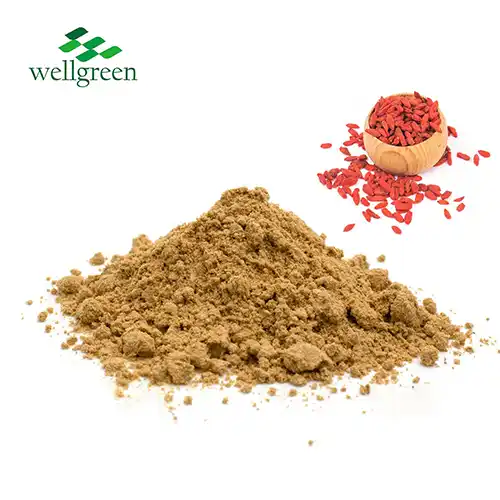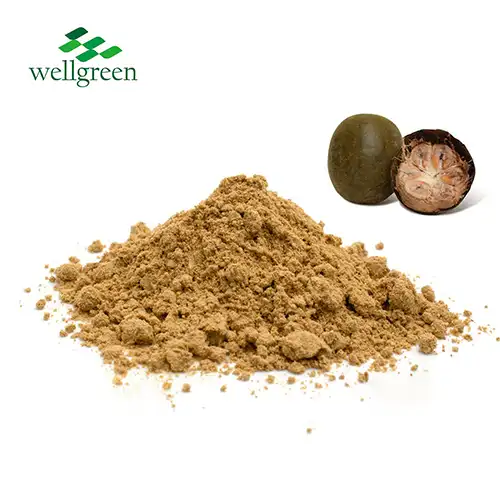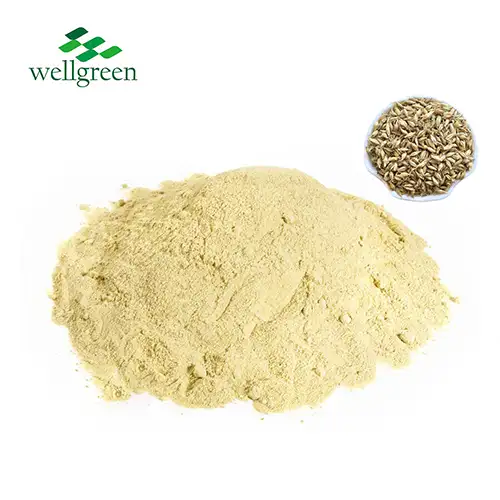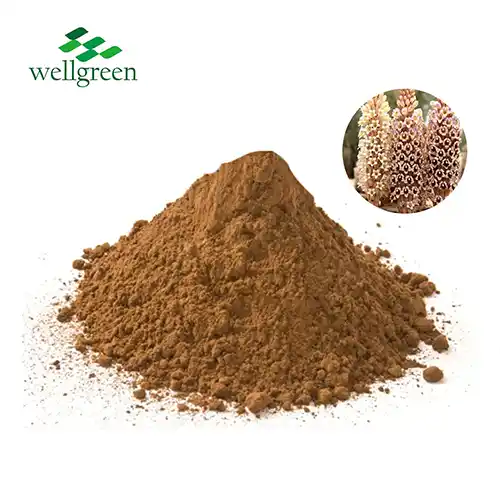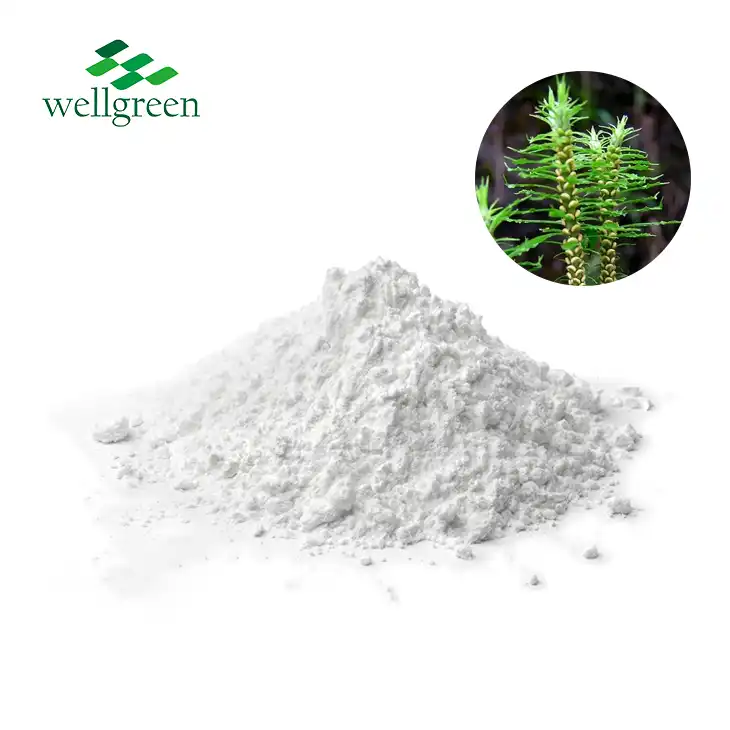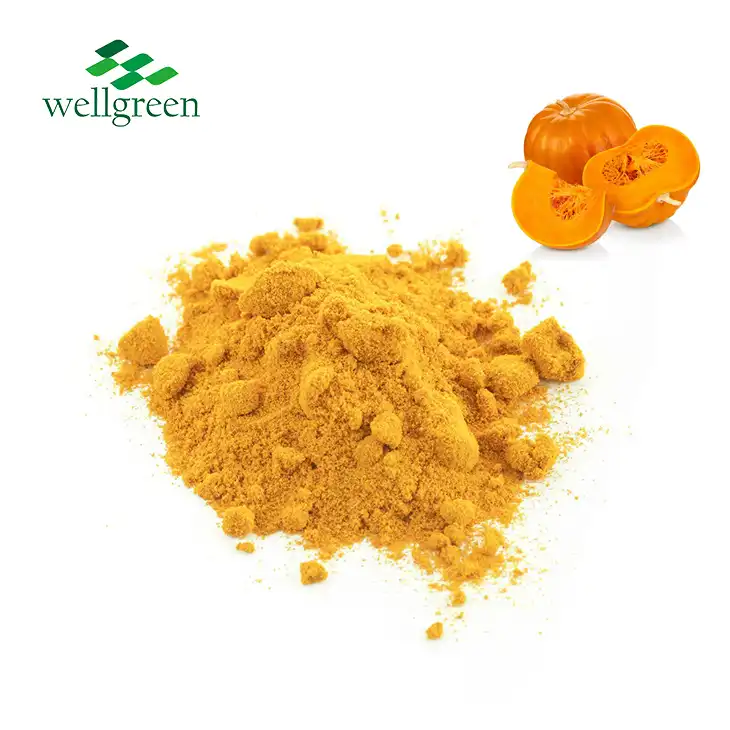What Is the Benefit of Broccoli Seed Extract?
2024-04-03 16:12:19
Broccoli, a cruciferous vegetable, has for some time been hailed as a wholesome force to be reckoned with, loaded with fundamental nutrients, minerals, and valuable mixtures. Nonetheless, as of late, the center has moved towards the possible advantages of broccoli seed extract, a concentrated wellspring of the plant's bioactive parts.As interest in natural health supplements continues to grow, many are wondering: what is the benefit of broccoli seed extract?
What Are the Active Compounds in Broccoli Seed Extract?
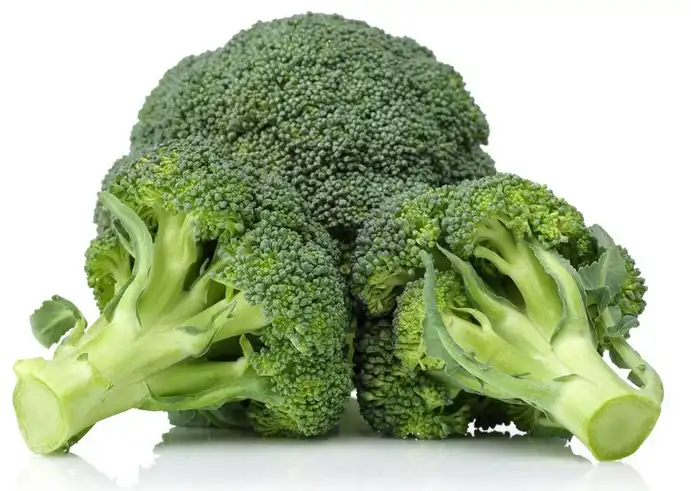 The essential dynamic mixtures found in broccoli seed extract are glucoraphanin, a glucosinolate, and myrosinase, a compound. At the point when these two parts connect, they produce sulforaphane, a powerful isothiocyanate with different natural exercises.
The essential dynamic mixtures found in broccoli seed extract are glucoraphanin, a glucosinolate, and myrosinase, a compound. At the point when these two parts connect, they produce sulforaphane, a powerful isothiocyanate with different natural exercises.
Sulforaphane is viewed as the most huge and very much concentrated on compound in seed separate, liable for the majority of its potential medical advantages. It is an exceptionally bioavailable compound, meaning it very well may be promptly ingested and used by the body.
Notwithstanding sulforaphane, the seed extract additionally contains other useful mixtures, for example,
1. Indole-3-carbinol (I3C): A phytochemical that has been read up for its potential enemy of disease properties and its capacity to tweak estrogen digestion.
2. Phenolic compounds: Cancer prevention agents that can assist with killing destructive free extremists and safeguard cells from oxidative pressure.
3. Nutrients and minerals: Broccoli seeds are a decent wellspring of nutrients C, E, and K, as well as minerals can imagine calcium, iron, and zinc.
What Are the Potential Health Benefits of Broccoli Seed Extract?
Due to its rich composition of bioactive compounds,the extract powder has been associated with various potential health benefits:
1. Cancer Prevention and Treatment:
Sulforaphane, the essential dynamic compound in seed separate, has been widely read up for its potential enemy of disease properties. It might help forestall and battle different kinds of disease, including bosom, prostate, and colon malignant growth, through various components, like actuating apoptosis (modified cell demise) in disease cells, restraining cancer development and metastasis, and safeguarding sound cells from DNA harm.
2. Cardiovascular Health:
Broccoli extract powder has been shown to have cardioprotective effects, potentially reducing the risk of cardiovascular diseases. Sulforaphane may help improve endothelial function (the inner lining of blood vessels), lower inflammation, and prevent the buildup of plaque in arteries, thereby reducing the risk of heart attacks and strokes.
3. Diabetes Management:
Some studies have suggested that seed extract may enhance insulin sensitivity and improve glucose metabolism, which could be beneficial for individuals with diabetes or those at risk of developing the condition.
4. Detoxification and Liver Health:
The compounds in seed extract, particularly sulforaphane, have been found to enhance the activity of enzymes involved in the body's detoxification processes. This may help eliminate harmful toxins and carcinogens more efficiently, supporting liver health and function.
5. Anti-Inflammatory and Antioxidant Properties:
The seed extract exhibits potent anti-inflammatory and antioxidant properties, which may help reduce inflammation and oxidative stress, two major contributors to many chronic diseases, including heart disease, cancer, and neurodegenerative disorders.
Are There Any Risks or Side Effects of Broccoli Seed Extract?
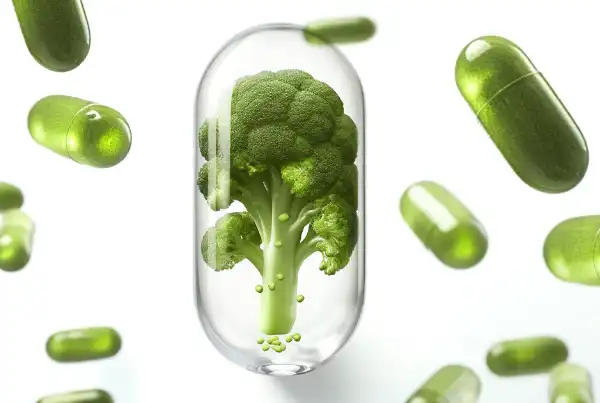 The seed extract is generally considered safe when consumed in recommended doses. However, like any supplement, there are a few potential risks and side effects to be aware of:
The seed extract is generally considered safe when consumed in recommended doses. However, like any supplement, there are a few potential risks and side effects to be aware of:
1. Digestive Issues:
Some individuals may experience digestive discomfort, such as bloating, gas, or abdominal pain, particularly when consuming high doses of seed extract or sulforaphane supplements.
2. Interactions with Medications:
Sulforaphane has been shown to interact with certain medications, particularly those metabolized by enzymes in the liver, such as blood thinners, cancer treatments, and certain antibiotics. It's essential to consult with a healthcare professional before taking seed extract supplements if you are on any medications.
3. Allergic Reactions:
While rare, some individuals may be allergic to broccoli or its compounds, including sulforaphane. If you experience any signs of an allergic reaction, such as rash, hives, or difficulty breathing, discontinue use immediately and seek medical attention.
4. Thyroid Function:
Cruciferous vegetables, including broccoli, contain compounds called goitrogens, which can interfere with thyroid function in some individuals, particularly those with pre-existing thyroid conditions or iodine deficiency. While the risk is generally low with moderate consumption, it's advisable to consult with a healthcare professional if you have concerns about your thyroid health.
It's important to note that while broccoli seed extract shows promising potential benefits, most studies have been conducted in laboratory settings or on animal models. More human clinical trials are needed to fully understand the efficacy, optimal dosages, and long-term safety of seed extract supplements.
In conclusion, the seed extract is a concentrated source of beneficial compounds, particularly sulforaphane, which has been associated with various potential health benefits, ranging from cancer prevention and cardiovascular health to diabetes management and detoxification. While generally considered safe, it's important to consult with a healthcare professional before taking any supplements, especially if you have underlying health conditions or are taking medications. By incorporating broccoli extract powder into a balanced diet and healthy lifestyle, you may be able to take advantage of its potential benefits while minimizing potential risks.
References:
1. Fahey, J. W., Zalcmann, A. T., & Talalay, P. (2001). The chemical diversity and distribution of glucosinolates and isothiocyanates among plants. Phytochemistry, 56(1), 5-51.
2. Higdon, J. V., Delage, B., Williams, D. E., & Dashwood, R. H. (2007). Cruciferous vegetables and human cancer risk: epidemiologic evidence and mechanistic basis. Pharmacological Research, 55(3), 224-236.
3. Bauer, D., Mazzio, E., Soliman, K. F., Taka, E., & Cooley, L. (2019). Glucoraphanin and sulforaphane: Technical preparation, total synthesis, and examination of their anticancer activities. Journal of Functional Foods, 54, 12-25.
4. Singh, K., Rani, A., Paul, J., Singh, G., Kaur, J., & Bhushan, S. (2020). Sulforaphane and its metabolites: Preclinical and clinical evidences for its antioxidant and anticancer activities. Journal of Functional Foods, 74, 104175.
5. Tarozzi, A., Angeloni, C., Malaguti, M., Morroni, F., Hrelia, S., & Hrelia, P. (2013). Sulforaphane as a potential protective phytochemical against neurodegenerative diseases. Oxidative Medicine and Cellular Longevity, 2013.
6. Mirmiran, P., Bahadoran, Z., Hosseinpanah, F., Keyzayi, A., & Azizi, F. (2012). Effects of broccoli sprout with high sulforaphane concentration on inflammatory markers in type 2 diabetic patients: a randomized double-blind placebo-controlled clinical trial. Journal of Functional Foods, 4(4), 837-841.
7. Yagishita, Y., Fahey, J. W., Dinkova-Kostova, A. T., & Kensler, T. W. (2019). Broccoli or sulforaphane: Is it the source or dose that matters?. Molecules, 24(19), 3593.
8. Dinkova-Kostova, A. T., & Talalay, P. (2008). Direct and indirect antioxidant properties of inducers of cytoprotective proteins. Molecular Nutrition & Food Research, 52(S1), S128-S138.
9. Mitsiogianni, M., Amery, T., Franco, R., Zoumpourlis, V., Pappa, A., & Panayiotidis, M. I. (2018). From chemo-prevention to epigenetic regulation: The role of isothiocyanates in skin cancer prevention. Pharmacology & Therapeutics, 190, 187-201.
10. Felker, P., Bunch, R., & Leung, A. M. (2016). Concentrations of thiocyanate and goitrin in human plasma, their precursor concentrations in brassica vegetables, and associated potential risk for hypothyroidism. Nutrition Reviews, 74(4), 248-258.

